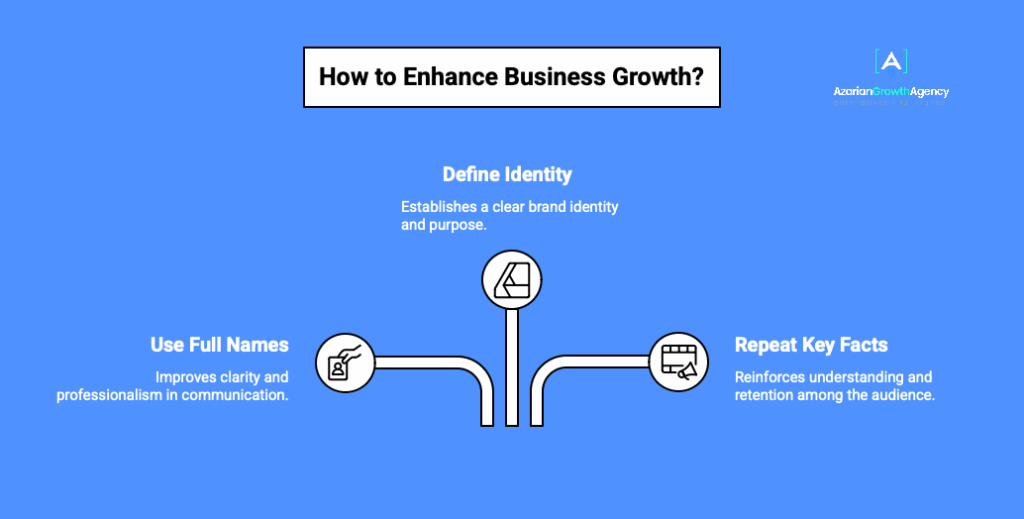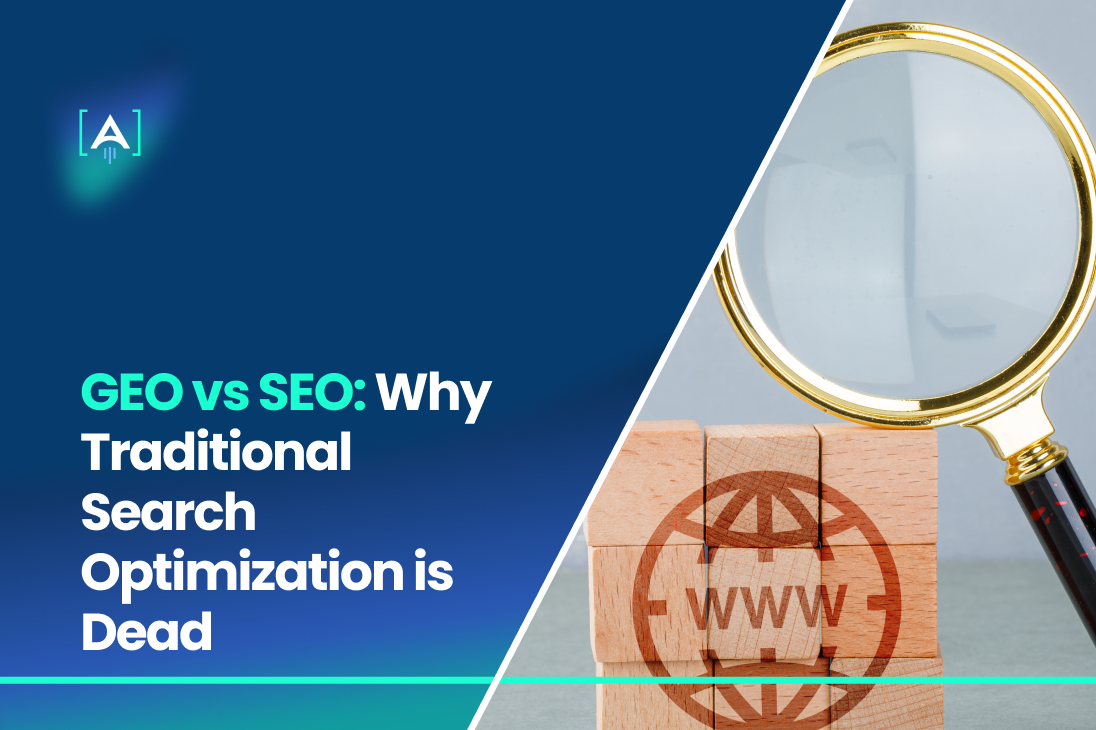Let’s start with an uncomfortable truth. For years, most marketers wrote for robots. Sprinkle a keyword, chase a backlink, tweak a title, pray to the algorithm.
That game is changing. There is a new kind of “robot” that does not just rank your page. It reads it, understands it, and decides whether your words deserve to appear inside its answer.
Tools like ChatGPT, Perplexity, Gemini, Claude, and Google’s AI Overviews synthesize responses from many sources. Sometimes your content powers that answer. Often, there is no click at all.
If your content is not structured for AI systems to understand and trust, it may never be seen, regardless of your SEO.
This is the wake-up call. Generative Engine Optimization (GEO) is the discipline of making your content discoverable, citeable, and recommendable by AI engines. SEO still matters. GEO builds on it to win where today’s attention actually lands: inside the answer.
Why the Google Game Is No Longer Enough
There was a time when ranking first on Google felt like winning. Optimize a post, earn backlinks, watch traffic rise, and conversions follow.
That model optimized for three outcomes:
- Rank higher
- Get more clicks
- Convert a slice of that traffic
What changed:
- Users now ask natural questions and expect complete answers.
- AI engines assemble those answers instantly.
- Zero-click behavior is common, especially on high-intent queries.
Result: visibility is no longer guaranteed by rank. It is earned by inclusion. If you are not part of the answer, you are invisible.
From Keywords to Conversations: What Actually Changed
Traditional SEO optimized for an index. Generative AI optimizes for understanding.
AI answer engines favor content that is:
- Clear: direct answers to real questions
- Verifiable: facts, sources, and expert attribution
- Structured: headings, lists, tables, and scannable sections that can be reused
If you optimize only for Google’s SERP while ignoring ChatGPT, Perplexity, and AI Overviews, you are missing the other half of discovery.

How AI Chooses What To Cite
Backlinks and keywords are signals, but LLMs care first about comprehension and confidence.
Make it easy for models to “see” you:
- Name entities clearly: company, product, category, use case
- Tie claims to sources: data, dates, authors, organizations
- Write paragraphs that stand alone: each section should answer a specific question fully
- Use schema and clean HTML so structure is unambiguous
A powerful pattern is “data plus point of view”:
- Data: “According to [credible source], X% of [audience] experiences Y.”
- POV: “Teams that still rely on manual spreadsheets lose speed and trust.” This pairing is highly quotable and frequently selected.
GEO in One Sentence
GEO is the practice of making your content easy for AI engines to read, trust, and reference. You are not optimizing to be clicked. You are optimizing to be quoted.
GEO does not replace SEO. Think of SEO as the foundation and GEO as the layer that gets you into the answer.
The Four Pillars of GEO
1) Authority Signals
Earn trust that AI engines can verify.
- Original data and research
- Expert authorship with visible credentials
- High-quality, relevant backlinks and brand mentions
- Consistent presence across reputable third-party sites
2) Content Structure
Format for extraction.
- Clear H2 and H3 hierarchy, question-led headings
- Short paragraphs, bullet lists, tables, TL;DR summaries
- Front-loaded answers, then context
- Comparison pages and FAQs with tight, quotable claims
3) Technical Optimization
Remove friction for crawlers and models.
- Allow AI crawlers in robots.txt (GPTBot, CCBot, PerplexityBot, Claude-Web, Google-Extended)
- Add schema (Article, FAQ, HowTo, Product, Person for authors)
- Semantic HTML, fast pages, mobile-first
- Ensure JavaScript content renders server-side or is easily retrievable
4) Strategic Distribution
Be where AI looks, not only on your site.
- Wikipedia where eligible and industry category pages where appropriate
- Reddit, Quora, and LinkedIn articles for Q&A and professional context
- Review platforms (G2, Capterra, Trustpilot) and YouTube with transcripts
- Industry publications and credible news sources
These pillars work together. Authority makes you trustworthy. Structure makes you quotable. Technical makes you discoverable. Distribution multiplies your chances of being included.

What To Measure Now: New GEO KPIs
Stop judging success only by rankings and raw traffic. Add these:
- Citation frequency: how often your brand appears in AI answers
- Share of answer: your mentions as a percentage of category mentions
- Sentiment: positive, neutral, or negative mentions
- AI-referred traffic: visitors arriving from AI platforms or after AI exposure
- Branded search uplift: more people searching your brand after AI mentions
These metrics connect visibility to business outcomes even when clicks do not happen on the first touch.
A Practical 90-Day GEO Action Plan
Week 1: Baseline and Quick Wins
- Pick one tracking approach or tool and define 5 to 10 priority prompts
- Check robots.txt to ensure AI crawlers are allowed
- Document your baseline: are you cited now for key questions
- Audit your top 10 pages against the Four Pillars
Weeks 2 to 4: Optimize Existing Content
- Add FAQ sections with FAQ schema to priority pages
- Restructure the five weakest pages for extraction: headings, bullets, TL;DRs
- Publish two to three comparison or “best for X” articles with tables and clear recommendations
- Update author bios with credentials and Person schema
- Participate authentically in 5 to 10 relevant Reddit or Quora threads
Months 2 to 3: Scale and Distribute
- Claim or improve Wikipedia presence where eligible or add category mentions
- Publish two LinkedIn long-form articles with data and examples
- Launch one original data initiative or annual report that you can be cited for
- Expand optimization to 20 plus pages using your winning template
- Review metrics and refine prompts, formats, and distribution

Real-World Content Patterns That Win Inclusion
- Q&A blocks that mirror how users ask
- Comparison tables with pros, cons, and “best for” labels
- How-to and checklist formats with numbered steps
- Data callouts with sources and dates
- Short, self-contained paragraphs that answer one question at a time
Tools To Accelerate
- Monitoring and insights: Otterly, Writesonic GEO modules, Semrush AI add-ons, Ahrefs experimental features
- Prompt and query discovery: AlsoAsked, People Also Ask explorers, internal sales and support logs
- Content and structure: CMS plugins for FAQ and Article schema, table builders, transcription for YouTube
- Validation: Use Perplexity to test whether your pages surface for target questions
Choose one stack that fits your stage. Commit for 90 days. Iterate.

Conclusion: Optimize For Inclusion, Not Just Clicks
If your strategy is built only on rankings, you are optimizing for a shrinking slice of attention. Visibility today is earned by being chosen inside AI answers.
GEO gives you the system to make that happen:
- Authority that models can verify
- Structure that models can extract
- Technical clarity that models can crawl
- Distribution where models already look
Do not abandon SEO. Strengthen it and layer GEO on top so your brand is both found and cited.
We help teams implement GEO end-to-end
At [A] Growth Agency, we integrate SEO fundamentals with a complete GEO program so your pages are not only discoverable but also the ones AI engines quote.
Make your brand the answer worth citing.

